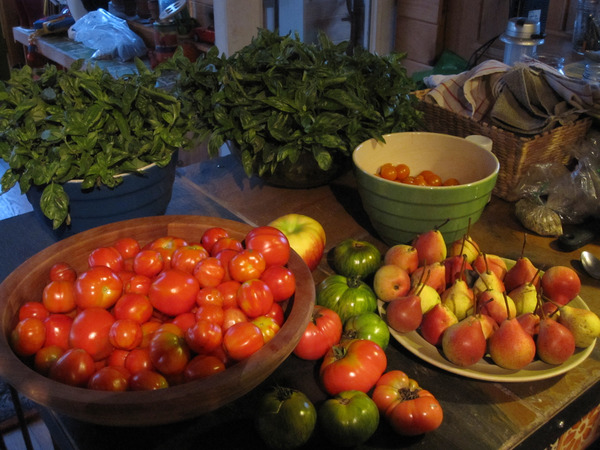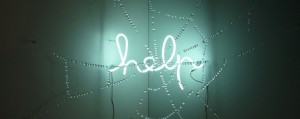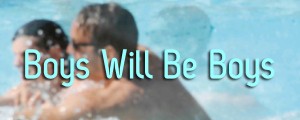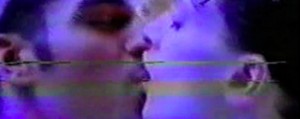Nick Zammuto has had some recalibrating to do. Ever since his long-term creative relationship with The Books ended in 2010, he’s had three sons, relative seclusion and an idyllic life in the Green Mountains of Southern Vermont to keep him occupied. Far away from his NYC days with fellow experimental artist Paul de Jong –with whom Zammuto released The Books’ fourth and final album The Way Out in 2010 –the visual art and chemistry graduate has been spending his time building his own house and gestating over the question of what the hell to do now. Teaching and carpentry came up as alternatives but instead that irrepressible creative energy that yielded acclaimed 2002 album Thought for Food demanded one last crack at a sustainable career in music.
Self-titled album Zammuto is its outcome. Featuring a full band and a live element that could never have existed in the cerebral cut-up of The Books oeuvre, the project and its upcoming album combines Zammuto’s electronic bent with a seemingly incompatible compulsion toward naturalist philosophy. Presenting a tension of opposites at its most taut, the restless distortion of ‘F U C-3PO’ is like shredded chill wave that inexplicably fades into an acoustic guitar rhythm, while closer ‘Full Fading’ swells in and out of its sonic environment on the ebb of a transcendent melody and electronic ambience that sounds contrastingly ecological. Taking time out to chat before an unrelated, though characteristic performance with New York performance collective Bang on a Can at the Barbican this month, Zammuto explains where his inspiration comes from and why his kids don’t have an iPad.
aqnb: Were The Books more into using backing tracks?
NZ: The front man of the band was essentially a video projection, in a way, so it was somewhere between a film and a concert. A lot of people kind of lost themselves in the video. I’m still using video to an extent but it’s much more in short bursts; as set pieces to refresh the set when it really needs it. Otherwise it’s just a band and I really want people to focus on the acoustic elements, or not the acoustic elements but the organic elements.
aqnb: I like that track ‘Crabbing’.
NZ: [Laughs] Thankyou. Most people are like, ‘maybe I won’t listen to it after that but, yeah, that was the find of last year.
aqnb: The actual song?
NZ: It’s a very rare record that I found at a little local shop in Vermont, where I live. There must have not been more than 50 copies of this record made. It was just a live recording of a high school theatre production of this underwater adventure called Conchology. That voice you hear is of the misanthropic crab that was warning everyone, ‘don’t trust those humans’. That was the crab song.
aqnb: Was the record already warped?
NZ: That’s how the record plays.
aqnb: So, it’s a straight up recording?
NZ: Yeah, well, I might have put my finger on the record a little bit when I was recording. It’s pretty nasty sounding though.
aqnb: How did you find it? Were you like, ‘oh, this is that really rare production recording that I wanted’?
NZ: No, it’s like this dirty old white record cover with just the word Conchology on the front and no other information on it whatsoever and I’m like, ‘this has got to be good’. [laughs]
aqnb: How has having kids changed your world view and your output?
NZ: Having kids is like a chemical change.
aqnb: Is this the chemist in you?
NZ: That’s what it felt like. Whether I was a chemist or not, I would have still felt it. I can’t remember what it was like not to have kids now; it’s that deep. That whole part of my life, I can’t remember it; they’re so much a part of me that it’s hard to imagine. It’s like never having had arms or something. I for one really recommend it because it’s refocussed the way I think about things in a really positive way. Of course, there are a million reasons not have them, especially these days.
aqnb: Once you’ve had them it’s hard to say why they shouldn’t be there, right? It’s that existential idea that you just exist and there’s nothing more to it.
NZ: Who knows what’s going to happen. Certainly there are going to be points in the future that are not pretty. You know, my boys are really into dinosaurs. I think part of their fascination is the fact that humans and dinosaurs never existed together. My five-year-old talks about it all the time. He’s like, ‘but dad, dinosaurs and humans never existed together, so you could never see a dinosaur in real life.’ I’m like, ‘yeah, all we have are the fossils’ and because it activates his imagination so much, it’s okay that they don’t exist anymore. I mean, they still do. We still have these bones. And I feel like that’s our future… Species just don’t last forever. It’s like a flower but you can still enjoy the blooming of it.
You mentioned activating your kids’ imaginations. Do they have access to computers and those kinds of media?
NZ: No, pretty strictly, no. We show them certain films but they’re classics and that’s the way I want to introduce them to the world of media. But kids brains are so fragile that they experience things really intensely. You don’t want to give them an iPad, or whatever, because it’s just like crack; they can’t recover from it quickly. The few times that I’ve tried, it’s ruined their entire day. I give it to them for 30 minutes and for the rest of the day they can’t concentrate. But I put them in front of a tub of blocks and they’re just in it for hours and after they’re done with it, they’re great. Until they’re really ready to handle it responsibly, I keep them away from it.
aqnb: I agree with not letting your kids get involved with media too early but, then again, you had Beatniks back in the day who didn’t have let their children watch TV and they sometimes came out of that a bit weird.
NZ: Yeah, it’s part of the process of socialisation. If someone’s talking about The Brady Bunch and you have no idea what they’re talking about, then you’re a weirdo. Maybe.
I grew up watching a lot of TV and I feel like my aesthetic is based on that. The channel surfing that I did when I was a kid. But since it was a broadcast medium, you were still forced to watch what was on, rather than choosing what to watch all the time. So now I’m worried that, because you’re always in control of what you’re watching, you’re not exposed to things that are slightly outside of what you might be interested in. It’s a subtle difference, maybe, but I think it adds up over time.
aqnb: Yeah, that’s a concern I have with things like personalised google algorithms. It just reinforces more extreme mindsets.
NZ: Yeah, and if it makes things more extreme… Specialisation is also an extreme problem in our society. My wife and I are essentially home sitters now and we don’t hire contractors to do anything. That’s our rule. We don’t hire anyone to work on our house. If we’re going to live in a house, then we can fix it ourselves and know how it works. If something goes wrong, we can fix it and not have to pay out the ass for it.
My wife is able to grow most of our own food during the summer and there’s nothing more satisfying than that. But our educational system pushes you in the opposite direction, where you specialise to the point where you can cash in and then pay everyone to do everything for you. It’s a really weird thing.

aqnb: With the internet too, it feels like time is more expansive. You can spend half an hour on it and you would have lived through however many decades of history because of the amount of information you’ve absorbed.
NZ: That’s interesting because I think, in order to be good at anything, you just have to cut through the junk; you have to go for the jugular. When I did teach at college a few years ago, I really noticed that something had changed between the new student population and when I graduated. Because kids have been so scheduled since they were young, especially the ones who had self-selected to go to an elite school, if you give them an open ended assignment, they have no idea what to do. They need to be pushed in a certain direction. Their internal compass is spinning. I wonder if there’s a way to tweak the educational system to make people value their internal compass more.
aqnb: Life seems like a constant stream of information, making it difficult to focus. It’s even hard to form an opinion because blogs make diverse opinions widely available. It’s almost like mind reading.
NZ: Yeah, you just can’t listen to other people at some point. You just have to make up your mind. That’s the great thing about working with these guys here [at Bang on a Can]. It’s outside of what I normally do and it’s not my scene at all but I’ve learned so much. Just to absorb their energy.
You’ll watch them play and they are completely one with their instrument. There is no other thought in their head except what they’re playing and it is completely inspiring. The level of musicianship is so high and it’s because they can concentrate so deeply. For that reason alone it’s something to marvel at. It doesn’t even matter what they play, it’s just kind of magical to watch them do it.
aqnb: There’s a lot of online music that is compressed and produced to sound crystal clear through your laptop speakers, is that a reason your focus is on the unpredictability of live performance?
NZ: With modern production techniques, it’s just like a ‘loudness war’. Everyone’s just trying to make it as loud as possible and you hear it wherever you go now. Stuff that’s not quite up to that level, it just gets lost. Even if it’s really awesome, if it doesn’t sound good on your iPad or whatever, people just aren’t going to listen to it. So, for me, I have to play that game a little when making records. You have to be able to listen to it in your car; you just have to do it. But with a show, you can get really quiet and draw people in but you can only do that on stage, you can’t do that on a record.
(Zammuto’s self-titled debut is out on Temporary Residence April 3, 2012)
















